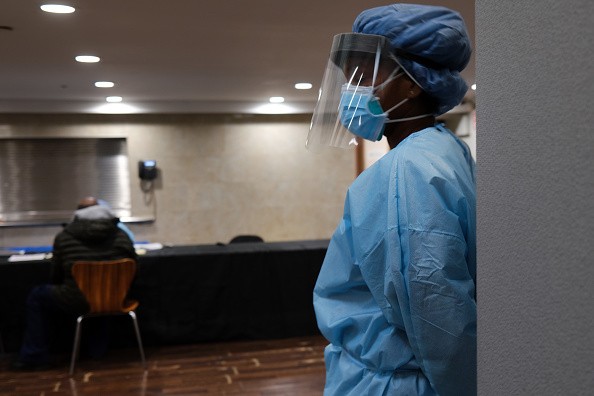COVID-19 Eye Transmission: Should We All Be Wearing Goggles or Face Shields?
The coronavirus disease 2019 (COVID-19) normally spreads through your nose and mouth. That's why, doctors recommended mask wearing and social distancing.
But what about our eyes? Do we also need to protect our eyes using goggles or face shields?
According to Dr. Thomas Steinemann, a clinical spokesperson for the American Academy of Ophthalmology, it is certainly possible for a person to get coronavirus through the eyes.

Last month, the World Health Organization (WHO) said there was "emerging evidence" of people catching the coronavirus from droplets floating in the air. Hence, one of those droplets can enter our body through our eyes.
According to the Centers for Disease Control and Prevention (CDC), it is also possible to get infected by touching contaminated surfaces and then touching our eyes.
Steinemann told CNN that if droplets are in the air, then it can "land on the eye." However, he noted that contracting the coronavirus through the eyes is less likely than getting it through nose or mouth or from inhaling it.
He added that if a significant number of people are getting infected through the eyes, doctors would probably diagnose more COVID-19 patients with conjunctivitis, also known as pink eye. But he clarified that having pink eye doesn't necessarily mean you have COVID-19.
"Also, consider the path the virus would have to take to infect you. It would have to infect the surface of your eye and be carried to your nose through your tears. From the nose, it would travel to the mouth or throat, and from there to the airways and into the lungs. That's a rather circuitous route," Steinemann noted. However, he emphasized that "it's certainly plausible."
Steinemann said eye coverings are good for people who can't practice social distancing or those who have to be in contaminated air areas due to being healthcare workers or home caregivers for an infected patient.
He noted that for an average person, who does only work from home or does not have close contact with other people outside their home, wearing a face mask and practicing a safe distance from others would be enough.
For his part, Dr. Anthony Fauci, the country's top infectious disease expert, said wearing an eye shield could help because the virus could enter through the eye.
In a recent interview with ABC News, Fauci noted that theoretically, everyone should protect "all the mucosal surfaces."
"If you really want perfect protection of your mucosal surfaces, you have mucosa in the nose, mucosa in the mouth, but you also have you mucosa in the eye," he said.
"So if you have goggles or an eye shield, you should use it. It's not universally recommended. But if you really want to be complete, you should probably use it, if you can," he added.
To sum up, wearing goggles or face shields can add extra protection, especially for those in high-risk situations, where you're likely to come into contact with the virus. But for an average person, wearing a face mask and practicing social distancing will be enough.
Check these out:
Are There Medications to Treat COVID-19? Here's What We Know
New Study Claims The Taller You Are, The Higher Risk of Getting COVID-19
USC Reports Coronavirus Outbreak at Fraternity Row, 40 Infected
Subscribe to Latin Post!
Sign up for our free newsletter for the Latest coverage!
© 2026 Latin Post. All rights reserved. Do not reproduce without permission.














